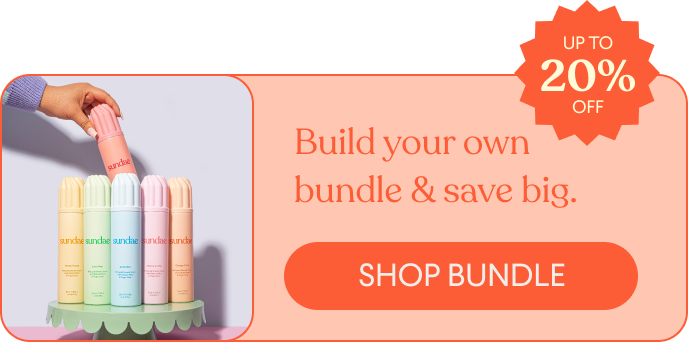After Sun Skincare 101: Your Qs Answered

After sun – it’s a loyal friend, skincare saviour and a super excellent coming-of-age film starring Paul Mescal (but save that for when you feel like crying – that’s all we’ll say there). So, what is after sun, how does it complement an existing sun protection skincare routine and why should we be slip-slop-slapping it up after a day in the sun? Strap in, ‘cause today we’re tackling all your burning after sun questions.
What is after sun lotion and how does it work?
After sun lotion is a superstar skincare product designed to soothe, hydrate and repair the skin after sun exposure. There are several types of after sun products, but most are formulated to help restore moisture lost due to UV exposure, which can dry out and damage the skin.
Key ingredients in after sun lotions typically include aloe vera for its cooling and moisturising effects, glycerin to lock in hydration, and vitamin E for its antioxidant properties that calm and protect the skin. Some formulas also feature cucumber extract, chamomile, or lavender to reduce redness and irritation.
Does after sun help sunburn?
After sun products can help soothe a sunburn by cooling and moisturising the skin. But, they don’t fix or reverse the damage that your skin has already been exposed to. Sunburn harms your skin cells, and after sun can’t undo that damage. What it can help with is relief from pain and dryness. (But it’s no replacement for protecting your skin in the first place – which is why it’s so important to wear SPF30 or 50+, every single day!).
Does after sun help you tan?
Tanning is essentially a sign of skin trauma, as your skin darkens in response to UV damage. (Yep, it’s true – even a light tan can indicate that you’ve been exposed to too much sun.) So, no – after sun products don’t help you tan, and they won’t make your tan last longer or deeper; rather, they are designed to soothe and repair your skin after sun exposure. By helping to restore lost moisture, reduce redness and calm inflammation, after sun helps the skin to heal after a burn.
Why does skin peel after a sunburn?
If you’ve ever experienced a severe sunburn, you’re likely familiar with the peeling that often follows – usually around three days after the burn. This peeling is a natural response, signalling that the body is working to shed damaged skin cells and begin the healing process.
Does after sun stop peeling?
After sun skincare can help prevent further damage and reduce the risk of peeling or dryness, helping your skin recover and look healthier overall.
How often should you apply after sun?
If you’re dealing with sun damage, after sun can be applied as often as necessary. It's important to ensure that damaged or burnt skin is kept moisturised and hydrated to avoid peeling. However, once your skin has healed, it's best to reduce your usage by applying it just once a day.
Can after sun be used as moisturiser?
Yes! After sun is similar to regular moisturiser but has added benefits, so it can be used as a daily moisturiser. However, to support skin recovery, avoid harsh cleansers or treatments for a few days, and if possible, delay waxing or shaving until your skin feels like itself again.
Can you put after sun on before and after sunscreen?
After sun should be applied after sun exposure, not before. Its main purpose is to soothe, hydrate and repair the skin after some fun in the sun. Sunscreen, on the other hand, should be applied before sun exposure and reapplied as directed to help protect your skin from harmful UV rays.
Does that about cover it?
Happy Sundae x
Always read the label and follow the directions of use. Sunscreen is only one part of sun production. Avoid prolonged high-risk sun exposure. Reapply frequently.
Written By: Lizzie Waley (Sundae Co-Founder & Body Care Enthusiast) | LinkedIn
Fact Checked: Charnnie Frimpong (Sundae Content Marketing Manager) | Linkedin

